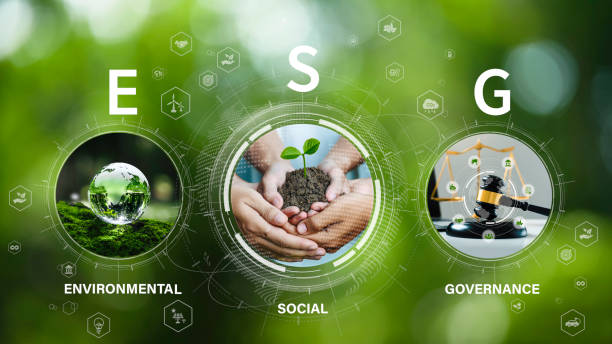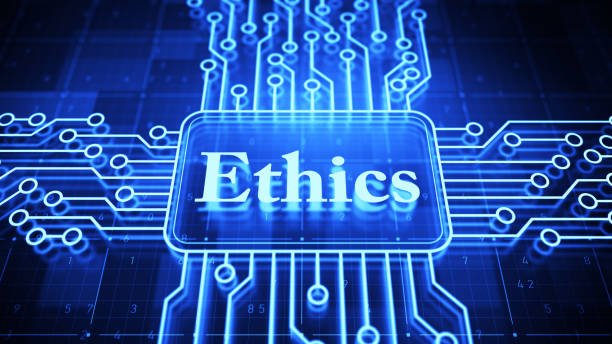Contents
- 1 Introduction
- 2 1. The Divorce of Technology and Ethics
- 3 2. Artificial Intelligence (AI) or ethical challenges
- 4 3. Data Privacy: A Key Ethical Concern
- 5 4. Social media and its ethical implications
- 6 5. Biotechnology: Innovation and Ethical Limits
- 7 6. Autonomous vehicles or ethical decision-making.
- 8 7. Surveillance Technology and Privacy Concerns
- 9 8. Technology and job displacement
- 10 9. Technology in Health Care: Balancing Innovation with Ethics
- 11 10. Ethical Considerations in Tech Startups
- 12 11. Environmental impact of technology
- 13 12. Ethical AI Development Methods
- 14 13. Ethical Marketing in Technology
- 15 14. Technology and Human Rights
- 16 15. Future Directions: Ethical Technology Development
- 17 Conclusion
Introduction
Ethics of Technology Nowadays, the role of technology has increased in every field and it has become a part of our life. With every new technological innovation comes new challenges, and it is imperative that we understand the ethical responsibility that accompanies innovation.
These articles explain in detail the ethical side of technology and a better balance between innovation and responsibility. We will explore different aspects of technology and see how we can drive innovation while maintaining ethical standards.
1. The Divorce of Technology and Ethics

The question of technology and ethics deepens with each new development. Whenever a new technology is introduced, ethical dilemmas come with us.
It is imperative that we understand the ethical implications of technology development as well as its ethical implications in order to have a positive impact on our society and environment. Misuse of technology has always been a concern and therefore it is important to understand and apply ethical frameworks.
2. Artificial Intelligence (AI) or ethical challenges
AI is a technology that is revolutionizing every field. But, AI also has ethical challenges that we must understand. Data privacy, algorithmic bias, and decision-making processes must be managed.
AI systems should be designed to be fair and unbiased These ethical concerns have become more prominent with the widespread adoption of AI, and therefore it is important to implement appropriate guidelines and regulations.
3. Data Privacy: A Key Ethical Concern
Data privacy is an important aspect of technology. Every day we collect personal information and it is important to protect it.
User data will remain protected until such time as the privacy laws and regulations are updated. Companies must follow data handling practices with transparency and accountability. If data privacy is ignored, it can lead to misuse and abuse, which is against ethical standards.
4. Social media and its ethical implications
The rise of social media platforms has made communication even easier, but with it come some ethical issues. Misinformation, cyberbullying, and privacy-related social media are not restricted.
Platforms must implement responsible content moderation and user protection mechanisms. Ethical use of social media ensures that what is necessary is done to have a positive impact and to prevent harmful behaviors.
5. Biotechnology: Innovation and Ethical Limits

Advances in biotechnology lead to improvements in medical treatments and genetic modification. But, is it important to understand the ethical boundaries in the field as well?
Ethical concerns arise in areas such as genetic engineering and cloning. Therefore, the development of biotechnology should be kept within ethical guidelines as long as they are not misused and human dignity should be respected.
6. Autonomous vehicles or ethical decision-making.
The concept of autonomous vehicles is set to revolutionize road safety, but there are also ethical issues with the technology.
When autonomous vehicles have to make decisions, what kind of ethical framework should they follow? For example, on what basis will the timing of an accident be decided? This question must be addressed with the development of autonomous vehicles.
7. Surveillance Technology and Privacy Concerns
Surveillance technology is used for security, but it also raises privacy concerns. Governments and organizations implementing surveillance systems will want to understand ethical considerations.
Adequate regulation and checks and balances are needed to prevent over-surveillance and misuse of data. Ensure that monitoring technology is utilized in an ethical and responsible manner.
8. Technology and job displacement
The rapid development of technology is causing job displacement. A lot of jobs are being replaced by automation and AI. Is it necessary to follow an ethical approach in handling the situation?
Companies and governments want to implement worker reskilling and upskilling programs to keep their jobs safe due to the impact of technology. Technological development cannot be sustainable without taking ethical considerations into account.
9. Technology in Health Care: Balancing Innovation with Ethics
Innovations in healthcare technology greatly improve treatment and diagnosis. But, it is also imperative that healthcare technologies be aligned with ethical standards.
Patient consent, data protection, and equal access are key ethical concerns for healthcare technology. When implementing healthcare innovations it is important to ensure that patient safety and privacy are prioritized.
10. Ethical Considerations in Tech Startups
Ethical considerations are as important to tech startups as anyone who founded the company. Startups must follow ethical guidelines when developing technology.
It is imperative to ensure that technology is not misused and social responsibility is exercised. Founders of startups may want to assess the ethical implications of their products and services.
11. Environmental impact of technology
Technological advances also have environmental impacts. Electronic waste and resource depletion are negative impacts of technology.
Therefore, it is important to align the development and use of technology with the principles of environmental sustainability. Environmental mapping of technology can be done as long as companies and individuals adopt environmentally friendly practices.
12. Ethical AI Development Methods
AI development practices must be aligned with ethical guidelines. Objectivity, transparency, and accountability are important ethical aspects of AI development.
Developers want AI systems to be fair and unbiased and make the decision-making process transparent. The technology’s positive impact can be ensured by following ethical AI development practices.
13. Ethical Marketing in Technology
Technology products and services should also be marketed with ethical standards. Misleading advertising and false claims are against the technology’s ethical guidelines.
Marketing strategy should be designed with principles of transparency and honesty. Make sure customers get accurate information and build trust.
14. Technology and Human Rights
Development and use of technology should be in line with human rights principles. Aspects of data privacy, freedom of expression, access to technology and human rights must be protected.
Governments and organizations should ensure that the use of technology does not lead to human rights violations and that they are respected.
15. Future Directions: Ethical Technology Development

In the future, technology development will be even more advanced, but along with it, it is important to understand the ethical considerations.
Ethical technology development practices can maximize the positive effects of technology adoption. Governments, organizations, and individuals must work together to achieve a balance between technology and ethics to ensure sustainable and responsible technology for future generations.
Conclusion
Ethics of Technology The role of technology in everyday life is increasing, but understanding and enforcing ethical responsibilities is equally important. Ethical frameworks must be adopted with every new innovation to ensure responsible and beneficial use of technology. will be done





